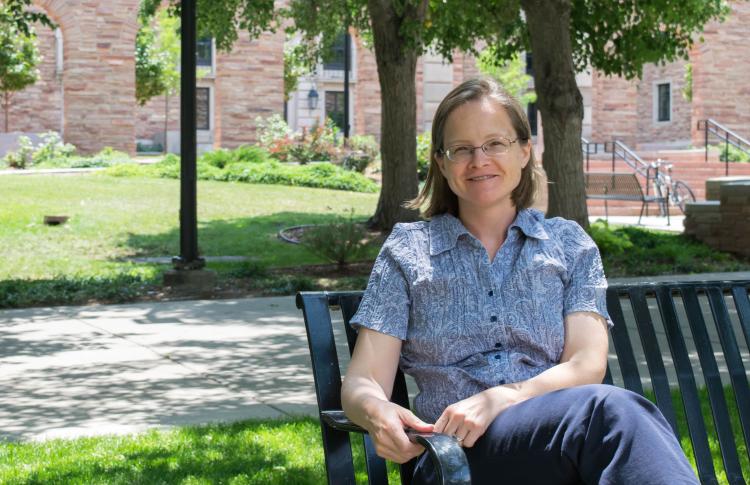PhET Interactive Simulations recognized for innovation in STEM education
CU Boulder’s PhET Interactive Simulations is one of 15 finalists for the prestigious WISE Award from the WISE Initiative.
A STEM-education project at the University of Colorado Boulder is one step closer today to adding another notch to its accolade belt.
The PhET Interactive Simulations project, a nonprofit science and math educational resource based at CU Boulder, is one of 15 finalists for the WISE Initiative’s 2017 WISE Award. The prestigious international award, which is given to six organizations annually, recognizes innovative educational projects that address challenges and bring transformative societal change.

Kathy Perkins, the director of PhET Interactive Simulations, began researching science education while working with Carl Wieman, one of five Nobel laureates at the University of Colorado.
For PhET, this change comes in the form of improving STEM (or science, technology, engineering and mathematics) literacy and accessibility across the globe through free, open-source educational software that is utilized more than 80 million times a year by students and teachers across the educational spectrum.
This award by the WISE Initiative, which is supported by the Qatar Foundation, would expand the program’s ability to reach new audiences and form new partnerships.
“The WISE Award would be a great opportunity to bring the PhET simulations to more teachers and students around the world, helping them advance science and math learning in their local communities,” said Kathy Perkins, director of PhET Interactive Simulations.
PhET, which originally stood for “Physics Education Technology,” was started by Carl Wieman, a former physics professor and one of only five Nobel Laureates from the university, when he saw the educational force that physics simulations provided to his audiences.
Using part of his Nobel Prize winnings and a grant from the National Science Foundation Distinguished Teaching Scholars program, Wieman founded the PhET project at CU Boulder in 2002 to encourage scientific literacy through interactive, research-based learning.
While PhET originally focused solely on physics simulations and education, today it addresses a global need to improve science and math education with more than 130 simulations in topics ranging from plate tectonics to calculus to natural selection.
These simulations are all designed using the same principles: they need to be interactive and flexible, to make the invisible visible, to encourage scientific inquiry, to create real-world connections for users, and to include multiple representations of the problem in question (i.e., using numbers along with graphs or object motion). Altogether, these create an environment for productive exploration.
Over the years, PhET’s reach has expanded across disciplines and around the globe, getting translated into 90 languages, and used in more than 200 countries and territories.
“What’s unique about science and math is that the language is really universal,” remarked Perkins.
“The concepts are universal, so when we build a simulation and we use particular representations, or a particular model behind the simulation, that’s the same in the U.S. as it is in Africa as it is in Singapore as it is in Europe.”
What’s unique about science and math is that the language is really universal."
The universal nature of PhET’s simulations, as well as their widespread adoption across the K-12 and university education spectrum, have contributed to the program’s success and consideration for the WISE award, which evaluates projects on three criteria: they need to be successful, innovative education projects that have already demonstrated their reach and transformative impact, they need to be financially stable and sustainable, and they need to be replicable and scalable.
The World Innovation Summit for Education (or, WISE) initiative, supported by the Qatar Foundation for Education, Science and Community Development, bestows this international award each year. Some of the 48 projects that have previously won have supported girls’ education, distance and rural learning, STEM initiatives and providing open-resource educational resources.
“We congratulate the Speed School Project, OPENPediactrics and PhET Interactive Simulations for making it to the finalist stage,” said Stavros N. Yiannouka, CEO of WISE, in a press release from the initiative.
The six final winners of the 2017 WISE award will be announced in September.

